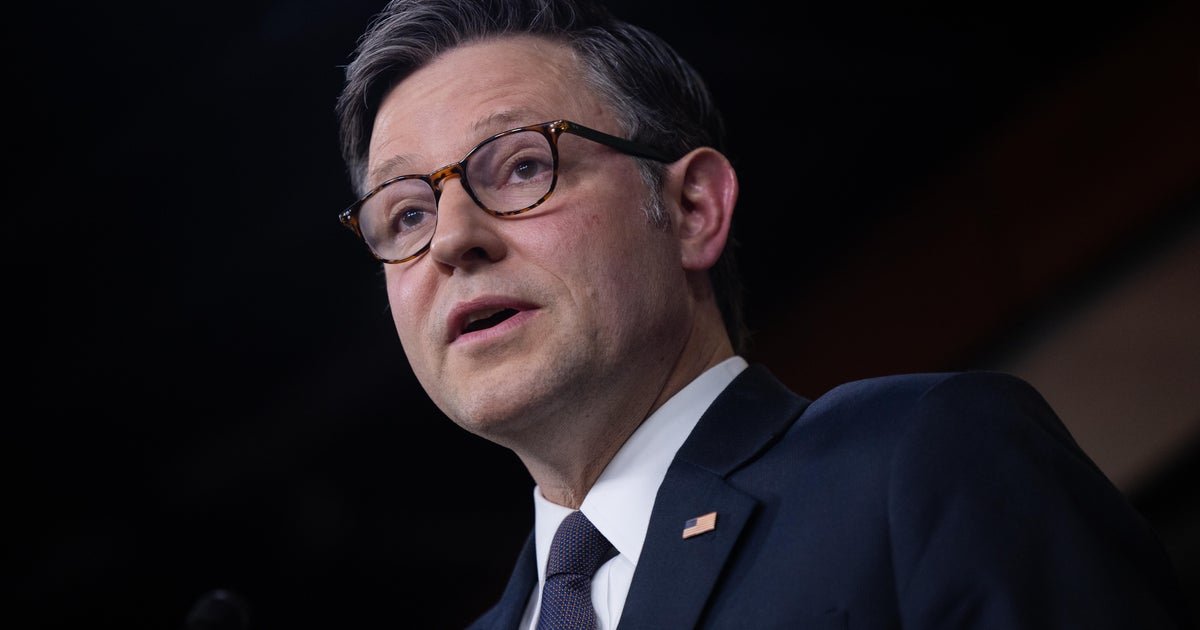[ad_1]
Washington — The House is pushing forward on President Trump’s “one, big beautiful bill,” as the final committees considered some of the most contentious parts of the major budget package aimed at addressing the president’s defense, energy and tax priorities.
The Ways and Means, Energy and Commerce and Agriculture committees began meeting Tuesday to debate and vote on their proposals as Republicans remained divided on a number of major issues — from Medicaid to tax cuts.
After a nearly 18-hour markup, the Ways and Means panel, which is responsible for the tax portions of the bill, advanced its portion of the legislation Wednesday morning, in a 26-19 vote. But the key sticking point, a cap on the state and local tax deduction, often referred to as SALT, appeared to go unresolved. Republicans who represent blue states have pushed for an increase to the $10,000 cap, but balked at a proposed $30,000 cap in recent days.
On SALT, House Speaker Mike Johnson, a Louisiana Republican, said Wednesday morning that he’s serving as the “neutral umpire” in the conversations between red state and blue state Republicans, adding that “I’m absolutely confident we’re going to be able to work out a compromise that everybody can live with.”
Meanwhile, the Energy and Commerce Committee was still meeting Wednesday morning and well into the day, following overnight debate on its portion of the legislation. The panel is tasked with finding $880 billion in cuts, which has implicated the popular entitlement program Medicaid.
The Energy and Commerce proposal, unveiled Monday night, would impose work requirements for able-bodied adults without children, more frequent eligibility checks, cuts to federal funding to states that use Medicaid infrastructure to provide health care coverage to undocumented immigrants and a ban on Medicaid covering gender transition services for children.
The Agriculture Committee also began meeting Tuesday evening, breaking for the night after three hours. The panel is tasked with finding $230 billion in cuts, and the most contentious issue surrounds the Supplemental Nutrition Assistance Program, widely known as food stamps. The committee’s proposal would increase the age requirement for able-bodied adults without children to qualify for benefits, while shifting more of the costs to states. The bill updates the age requirement to 64, up from 54.
Republicans also want to close a loophole for work requirement waivers that states could request for areas with unemployment rates over 10% or lack “a sufficient number of jobs.” The committee reconvened Wednesday morning to continue debating the issues.
House GOP leadership celebrated the committee stage nearing a close in their weekly presser Wednesday morning.
“A lot of work has gone into getting 11 committees ready to complete all of their work today,” House Majority Leader Steve Scalise, a Louisiana Republican, said.
Republican leaders have been pushing to have the bill on the floor by next week, with the House Budget Committee expected to meet in the coming days to put the bill’s components into one massive legislative package. After that, the measure would then go to the House Rules Committee before it can be brought to the floor for a vote.
“This process isn’t over. We’re just getting close to maybe half time,” Scalise said. “When we pass this bill next week through the House, it will go to the Senate, they’ll do their work. But we will get this bill to President Trump’s desk before the July 4 deadline that the White House has asked for.”
Johnson also touted the progress on the legislation so far Wednesday, calling it “one of the most consequential pieces of legislation ever passed by the United States Congress.”
“It is large, it is comprehensive, and it deals with reconciling the budget in a way that will be fiscally responsible,” Johnson said.
Still, across the Capitol, a handful of Senate Republicans began expressing concerns about the House’s legislation, prompting discussions about seemingly inevitable changes to the package in the upper chamber.
Senate Majority Leader John Thune, a South Dakota Republican, told reporters Wednesday that he hopes the House sends over legislation that the upper chamber can “use as a base.”
“I think we’ve assumed all along that the Senate would have its input on this,” Thune said, noting that they have been coordinating closely with the House. “Obviously there’s 53 Republican senators who want to have their own thoughts and ideas incorporated.”
contributed to this report.
[ad_2]



